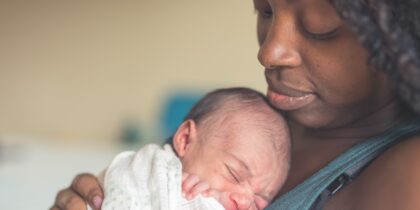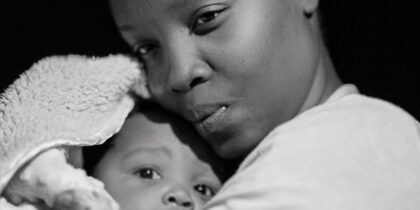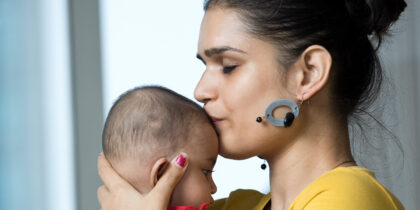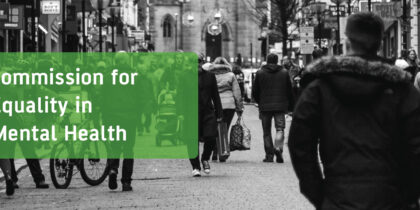By Sandra Igwe
Racial inequality intersects with maternal mental health in more ways than we can imagine. My experience and journey has been reiterated by so many other Black mothers. Conversations, projects, research, and wider work around Black motherhood, mental health, and the inequalities in our health care system need to keep happening to achieve better outcomes for women like me.
My reality of early motherhood involved sleepless nights, anxiety, stress, loneliness, feelings of being overwhelmed and having difficulties in coping. Yet I felt like I couldn’t trust services and could not open up about the mental health challenges I was battling with.
I’ve often felt that a lack of personalised, attentive care was a main issue and a significant barrier to accessing perinatal mental health support. After giving birth to my daughter, interactions with health care practitioners seems more of a ‘tick box exercise’, without offering a further opportunity to explore and share concerns. I didn’t feel understood or seen.
My unrealistic expectations of motherhood definitely led me to challenges – adjusting to the experience itself, acceptance of my ‘new reality’ and ultimately undiagnosed postnatal depression and anxiety.
I set up The Motherhood Group, a social enterprise that supports the Black maternal experience as there were so many gaps in the system that frustrated me. My organisation supports mothers by delivering community-based events, workshops, peer-to-peer support, national campaigns, and culturally sensitive programmes for Black mothers. From my experience, involving wider social networks can reduce stigma within the community. Through bringing new mothers together to speak about our concerns and challenges, we are less likely to feel alone or shamed for struggling to cope.
I’m also Trustee for Birthrights Charity, the leading charity on human rights in pregnancy and childbirth in the UK, and the co-chair of the National Inquiry into Racial Injustice in Maternity Care. This inquiry knows that women and birthing people from racialised communities face harmful, entrenched inequities in maternity care, posing serious concerns about whether our basic human rights are being upheld.
Centre for Mental Health’s key focus is on the eradication of mental health inequalities. And their work has highlighted that often, groups of people who face the highest risks to their mental health also get the poorest access to effective support. These inequalities are glaringly obvious in maternal mental health care for Black communities; in mothers’ chances of experiencing perinatal mental health problems, their access to care, and the effectiveness of such care. These inequalities need to end, and soon.
I often hear ‘race has nothing to do with it’. In reality:
- Postnatal depression and anxiety in mothers from racialised communities is 13% higher than in white mothers.
- Black women are the group least likely to initiate treatment for postnatal mental illness.
- Black women are also the least likely to receive follow-up treatment. This racial disparity is putting the lives of Black mothers at risk as research in 2018 found that 23% of women who died in the postnatal period suffered from mental health disorders.
- Study shows that professionals in the UK lack the training and the confidence for identifying the specific needs of black women – causing black mothers to ‘fall through the net’.
- It’s also important to note that Black women are five times more likely to die during childbirth; I believe this is one of the many reasons why Black mothers are now even more anxious and stressed over their birthing experience and postpartum journey.
- Research also finds that people from racialised communities are more at risk of experiencing loneliness, and often face greater barriers accessing help to overcome it. This shines a spotlight on additional triggers of loneliness that have, to date, largely been overlooked, such as racism and discrimination.
We need to have more open and honest conversations with Black mothers which focus on their health and wellbeing needs in the perinatal period, from all health professionals in the perinatal pathway. Improved conversations about a mother’s wider support network, along with a focus on attentiveness to the concerns of mothers when speaking, could make a big difference.
Sandra Igwe is CEO of The Motherhood Group







